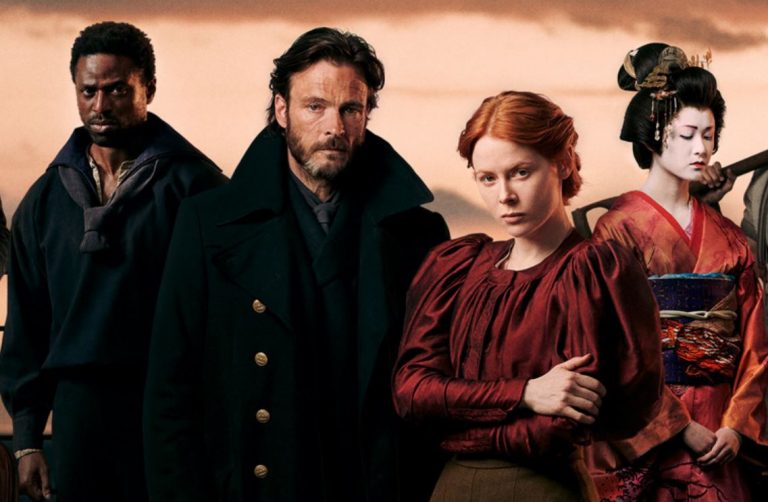Spike Lee’s “Highest 2 Lowest” (2025) offers a reimagining of Akira Kurosawa’s 1963 classic in a contemporary setting. Lee infuses it with his characteristic style while placing it in the buzzy and restless streets of New York. He revisits the central themes of class conflicts, but introduces them with a refined understanding of his side of the world. It feels rooted in this culturally specific setting, even as it takes some big creative swings with its camerawork, editing, and musical choices. It all gives you the sense of a place that its characters inhabit. That’s crucial for a plot that hinges on an open dialogue between the highest and the lowest parts of this world.
To keep it relevant, Lee’s film also sheds light on how the profit-driven nature of the business has affected the creative industry, as it points out its ongoing disintegration toward something inauthentic and disastrous. It oozes with a passion for a bygone era when art was made or discovered for joy or emotional sustenance, not simply for its commercial appeal.
While bold and vibrant, Lee’s crime thriller is also grounded when it deals with the past and future of music. With Lee at the helm, Denzel Washington also feels freer as he swings through the frames, smiling a little brighter and laughing a little louder. By the end, his music mogul character takes a step to help others express themselves as freely and candidly as he does.
Spoilers Ahead
Highest 2 Lowest (2025) Plot Summary & Movie Synopsis:
“Highest 2 Lowest” follows a music mogul caught in a ransom plot after his son gets kidnapped. It leads him to confront the foundations of his life, built on his deep interest in art and music.
What happens in Spike Lee’s Highest 2 Lowest?
Spike Lee’s adaptation opens with David King (Denzel Washington), a high-level music executive, discussing the future of his record label, Stackin’ Hits Records, with an associate over the phone. He returns to a discussion about this deal at his office. His colleague, Patrick Bethea (Michael Potts), isn’t on board with him, vetoing his earlier decision to buy a majority of his stocks. If he had stuck to this decision, he might have led a quieter life away from the business. However, in the present, he decides to regain control over his label, worried that a rival label may snatch it without realizing the value of the art it has nurtured over the years.
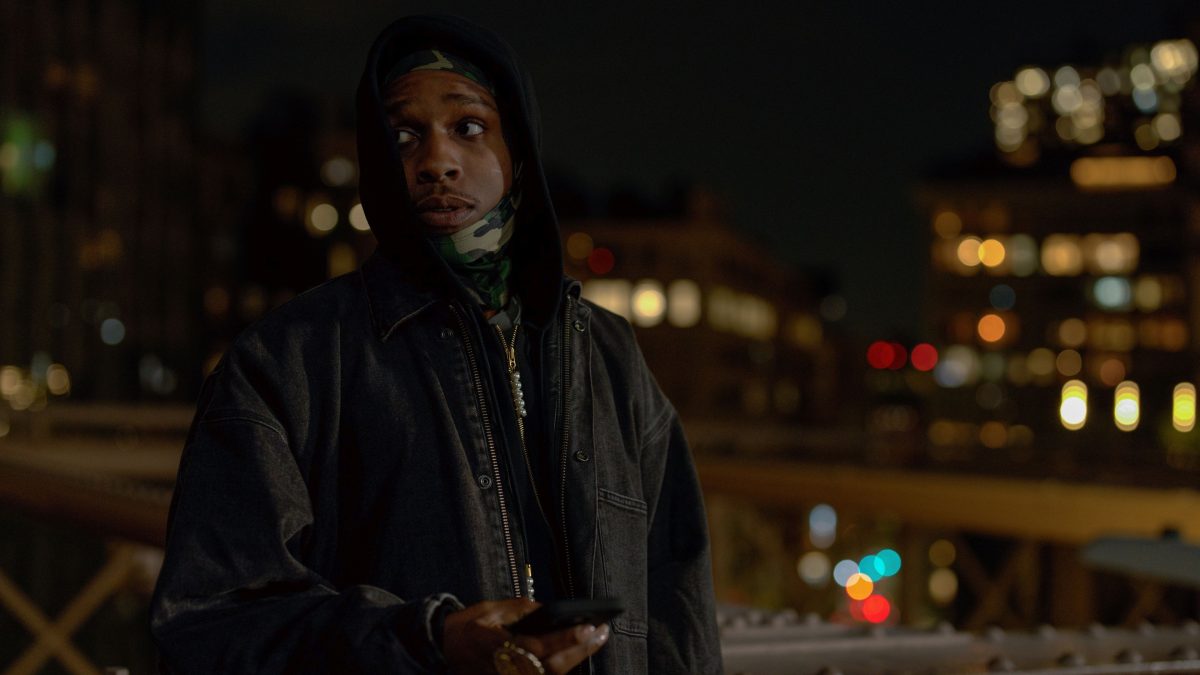
David says that he doesn’t want AI regurgitations to be sold as music either. So, he resolves to buy back the label, even if it’s a financially risky decision, considering the recent numbers, where the business could barely break even. His wife, Pam (Ilfenesh Hadera), also worries about the repercussions, but they soon find a common ground.
As soon as they clear the air on this topic, they learn something even more shocking. Someone kidnaps their teenage son, Trey (Aubrey Joseph), and asks for a massive ransom in exchange for his life. The detectives begin their investigation and soon find him, but not Kyle (Elijah Wright), the son of David’s family friend and chauffeur, Paul (Jeffrey Wright).
The kidnapper mistakes Kyle for Trey and abducts him instead. Even if it’s not David’s son, he asks for the same amount. It puts the Kings in a spot. If David doesn’t pay the money, Paul may never see his son. It can also affect his reputation, which would tarnish the brand image of his business. If he pays, he might not have the money to buy back the label. So, he can’t make a decision. While Pam understands his dilemma and empathizes with him, Trey expects him to help Kyle by any means necessary. Patrick questions his indecision, forcing him to see what’s right, not just for the business, but for the greater good.
How does David find the kidnapper and protect Kyle?
After due consideration, David decides to pay the ransom to save Kyle. The kidnapper asks him for something more — something personal, which makes David sense that the man is not only after money. Still, the Kings do whatever they can to help Kyle. David hops on a subway ride to drop the bag full of cash with a secret GPS tracker, as the detectives join him as civilians.
While on the train, he receives a call from the kidnapper, who manages to get hold of the cash without getting caught by the police. Ultimately, the money helps them save Kyle, but not to find the kidnapper. It turns David into an overnight sensation through a viral video of him dropping the bag.
This Year’s Cinematic Victory: The 25 Best Movies of 2025 (So Far)
People start calling him a hero for his selfless deed to pay the price to save his chauffeur’s son. He becomes a trending topic of discussion. But it jeopardizes his deal to regain control over his label, since he breaches a term of their contract by using that money for reasons beyond what was expected. He is expected to recover that amount in two weeks.
In a desperate attempt to save the day, he decides to accept another deal, earlier proposed by his colleague, Alex (Frederick Weller). By then, Alex had canceled it. He believed that they wouldn’t need help since David received charitable hero status, which boosted their sales. So, left with seemingly no other option, David tracks down the kidnapper.
David realizes the man’s identity after listening to a hip-hop track on a playlist made by his son. The lyrics are similar to what Kyle described his abductor was playing. He also realizes the rapper’s voice matches the one on the phone. The officers don’t consider it substantial evidence to issue a warrant.
So, David takes matters into his own hands. He shows up at the rapper’s house to meet his partner, Rosa (Princess Nokia), who mentions how much her husband admired him and saw him as a father figure. She ends up revealing Yung Felon’s actual location, not knowing that he’s the kidnapper. That’s how David finds the kidnapper.
Highest 2 Lowest (2025) Movie Ending Explained:
How does David King get back at Yung Felon?
Paul drives David to a studio where Yung Felon (A$AP Rocky) records another song. David breaks in to have a word with him. He offers the rapper a chance to join his record label to get far more money and fans than he has now. Felon rejects it, since he already has the ransom amount. He also hates that David came to help him, out of desperation, only after he lost a lot of money.
Before this, David didn’t offer him any deal, even if he had approached the label more than once. In the present, David tries to change Felon’s mind on this topic, offering a record deal in exchange for his money. He persuades Felon by speaking about his father, who was presumably on the wrong side of the table.
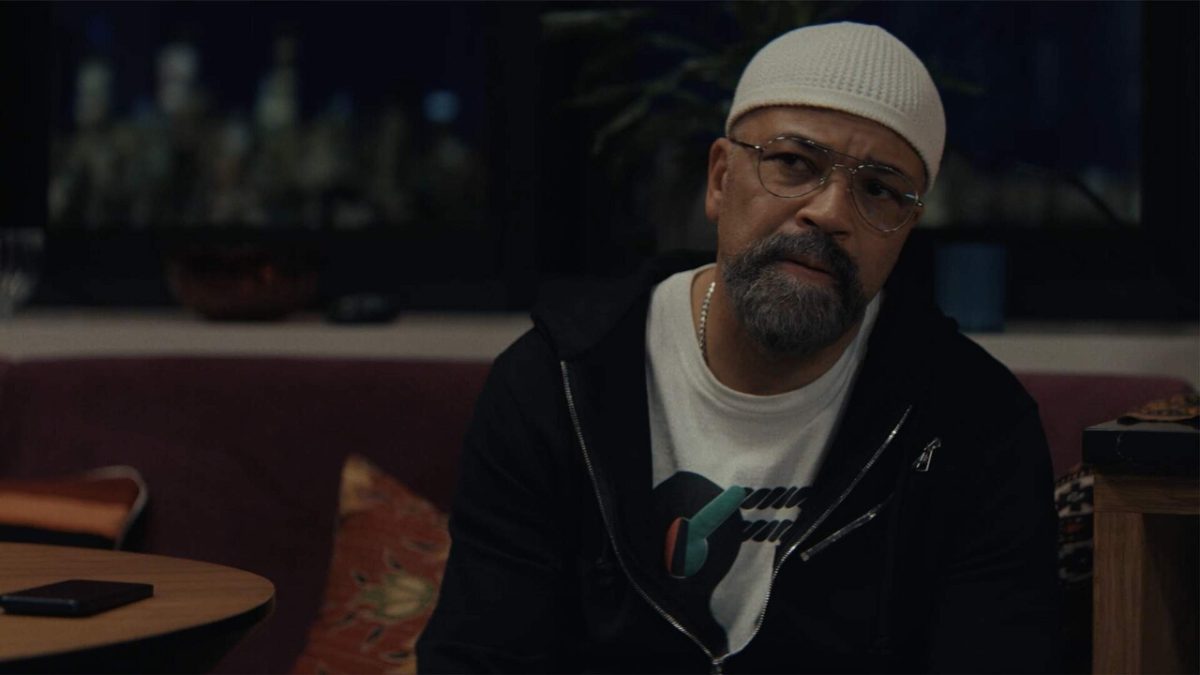
David urges Felon to right his father’s wrongs by choosing the right path instead. He also mentions that he understands Felon’s point of view since he has also “come from nothing, wanting everything.” Still, Felon doesn’t bow down. Instead, he rushes out of the studio, with David following him. Felon shoots Paul in the eye, but soon gets caught by David, who beats him black and blue.
The authorities arrest him, turning him into a notorious figure who gets a lot of attention. Whether positive or negative publicity, it helps him top streaming charts. Later, he invites David to offer a deal from his side, allowing him to bring him on his label. He doesn’t realize that David has changed quite a bit since they last met.
By the end, David doesn’t seek money as he used to. Instead, he seeks talent. That’s why he leaves Stackin’ Hits Records and starts a smaller label to help hungry musicians through his new enterprise. The final moments show him listening to a talented singer-songwriter, Sula (Aiyana-Lee Anderson), perform, as suggested by his son. He is so taken by her performance that he offers her a deal, although she doesn’t get the online traction as Yung Felon.
Highest 2 Lowest (2025) Movie Themes Analyzed:
Class-Clash and the Economy of Attention
As the title suggests, Spike Lee’s film is about the highest and the lowest of the socio-economic pyramid having a dialogue with each other. David represents the former, Yung Felon represents the latter. Paul falls somewhere closer to Felon, since, despite his close relationship with the Kings, he struggles to save his son due to David’s early indecision.
Later, David cites his rags-to-riches tale while speaking with Felon, who doesn’t have the means to do what someone with David’s wealth and resources can. Eventually, David uses his privilege in this equation to help the talented artists in need instead of chasing the clout.
Alan Fox’s screenplay also highlights the tragic state of the music business, or any creative industry for that matter, where those in charge are following the people who get more attention, irrespective of their skills. Lee’s film feels like a plea against this traction-chasing mindset, revealing the shallowness of fame and wealth against the depths of an enduring talent and creativity.
It directly impacts David and Felon’s respective fates as they make drastically different decisions than what they set out to do, once they see the effects of online or offline attention. Yet, David makes a pivot in the end to uplift others instead of simply serving his empire.



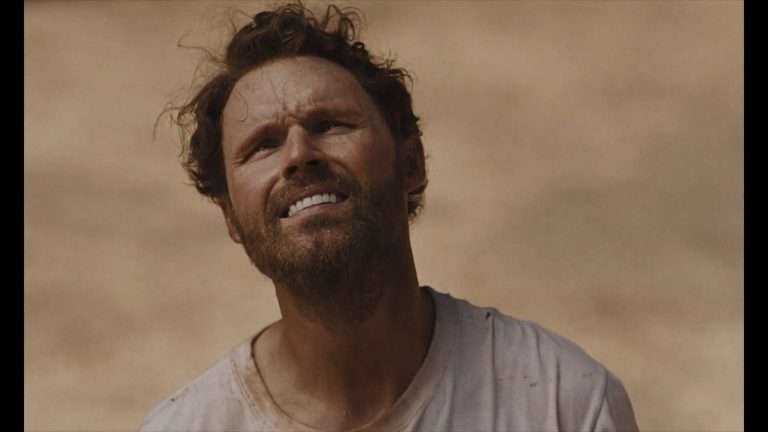
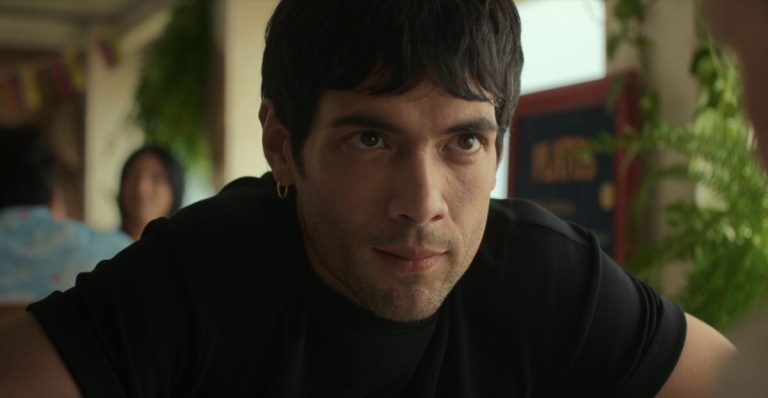
![The Twentieth Century [2020] Review: The art of Storytelling at its most Cinematically Bizarre](https://79468c92.delivery.rocketcdn.me/wp-content/uploads/2020/11/The-Twentieth-Century-highonfilms-3-768x577.png)
